About
The Department of Electrical Engineering was established in 2001-02. The Department presently offers the degrees of Bachelor of Technology (B.Tech.), Master of Technology (M.Tech.) in Power Systems. The undergraduate course was started in 2001-02 with an intake of 60 undergraduate students, which eventually increased to 180 in 2015-16. Intake of postgraduate students is 18 and was established in 2014-15. The faculty members and the technical assistants of the department are rich in academic, industrial and research experience. Members of faculty regularly publish in peer reviewed journals and conferences of highest international acclaim. They also serve in honorary positions of reputed Institutions, such as Faculty Councils, Committee, etc., and as expert reviewers for renowned journals
The departmental laboratories are configured with latest technologies. The students of the department are mostly placed in software and core companies of esteemand a significant number are involved in higher studies in major engineeringinstitutions in the country and abroad. Apart from academics, the department also encourages its students to develop innovative models and participate in extracurricular activities to ensure all-round development and boosting confidence level.
Mission
1. To produce industry-ready professionals in Electrical Engineering, and achieve excellence through educational program incorporating skillbased teaching-learning process and contributes in the fast changing development in engineering.
2. To encourage students for entrepreneurship programs and partnerships with different segments of the society and provide a framework for promoting collaborative and multidisciplinary activities to contribute for the socio-economic development of the nation.
3. To provide suitable platforms to enhance the creative talents of students and faculty member through research and development.
4. To prepare professionals with good technical skills, positive attitude and ethical values and enabling students to promoting in lifelong learning
Vision
To impart knowledge through research based teaching –learning process as to evolve globally competitive Electrical Engineers with highhuman values and thereby contributing to the knowledge-based economy and society.
Program Outcomes
1. Engineering knowledge: Apply the knowledge of mathematics, science, engineering fundamentals, and engineering specialization to the solution of complex engineering problems.
2. Problem analysis: Identify, formulate, research literature, and analyze complex engineering problems reaching substantiated conclusions using first principles of mathematics, natural sciences, and engineering sciences.
3. Design/development of solutions: Design solutions for complex engineering problems and design system components or processes that meet the specified needs with appropriate consideration for the public health and safety, and the cultural, societal, and environmental considerations.
4. Conduct investigations of complex problems: Use research-based knowledge and research methods including design of experiments, analysis and interpretation of data, and synthesis of the information to provide valid conclusions.
5. Modern tool usage: Create, select, and apply appropriate techniques, resources, and modern engineeringtools including prediction and modelling to complex engineering activities with an understanding of the limitations.
6. The engineer and society: Apply reasoning informed by the contextual knowledge to assess societal, health, safety, legal and cultural issues and the consequent responsibilities relevant to the professional engineering practice.
7. Environment and sustainability: Understand the impact of the professional engineering solutions in societal and environmental contexts, and demonstrate the knowledge of, and need for sustainable development.
8. Ethics: Apply ethical principles and commit to professional ethics and responsibilities and norms of the engineering practice.
9. Individual and team work: Function effectively as an individual, and as a member or leader in diverse teams, and in multidisciplinary settings.
10. Communication: Communicate effectively on complex engineering activities with the engineering community and with society at large, such as, being able to comprehend and write effective reports and design documentation, make effective presentations, and give and receive clear instructions.
11. Project management and finance: Demonstrate knowledge and understanding of the engineeringand management principles and apply these to one’s own work, as a member and leader in a team, to manage projects and in multidisciplinary environments.
12. Life-long learning: Recognize the need for, and have the preparation and ability to engage in independent and life-long learning in the broadest context of technological change.
Program Educational Objectives
1. To offer the basic concepts in mathematics, Physical Sciences and engineering fundamentals to develop proficiency in solving of electrical and electronics engineering problems.
2. To train the students through rigorous education to comprehend and analyze the real life problems and Complex laboratory skills by pedagogy in professional areas of Electrical Engineering.
3. To prepare students to undertake higher education and also to meet the demand of industry and make them aware of the art of technology to meet global challenges.
4. To create graduates possessing sound fundamental knowledge, ethical attitude, effective communication skills, and teamwork to relate engineering issues to broader social and multidisciplinary context promoting life-long learning with leadership needed for a successful professional career.
Program Specific Outcomes
1. To be able to apply the techniques to the engineering program that includes Physics, Mathematics, Chemistry, application of computer Science, mechanical and electronics Applications and laboratory skills for different system such as Electrical machine, power system and Power Electronics and Drives .
2. To create experts and work professionally in power system, control system, and Power Electronics and Drives and software industries.
3. To analyze, design and conduct investigations on complex system containing hardware and software for system automation.
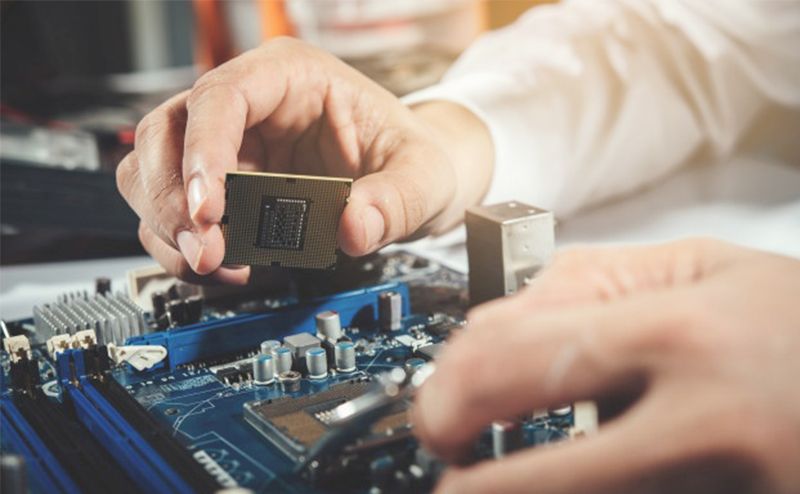
Electrical Engineering
B.Tech : Techno Main Salt Lake provides B.Tech program in the department of Electrical Engineering. Students enrolled in this course will be able to study the applications of electricity, electronics and electromagnetism. Employment opportunities entail energy generating sectors including hydro and solar energy. Electrical engineers work, plan and create the infrastructure for electrical equipments and instruments such as generators, transmission lines, transformers and power distribution switch gears.
B.Tech Lateral : Techno Main Salt Lake provides B.Tech lateral entry program in the department of Electrical Engineering. This course enables aspirants with 3 years diploma in engineering or an equivalent degree to get admitted in 2nd year of B.Tech.
M.Tech : Techno Main Salt Lake provides M.Tech program in the department of Electrical Engineering. A master’s degree in Engineering involves research studies in varied fields of specializations. Participation in International conferences and submission of research methodologies in premier journals are paid utmost importance at Techno Main.
Laboratories
b. A brief description of Major instruments/Softwares
i. Desktop Computer (Pentium CPU 3.10 GHz, 4 GB RAM, 500 GB HDD) – 40 Nos.
ii. Network Switch (24 ports, Gigabit) – 2 Nos.
iii. GNU Prolog / Turbo Prolog
iv. Xilinx ISE Design Suite 14.7
v. CodeBlocks with GNU C Compile
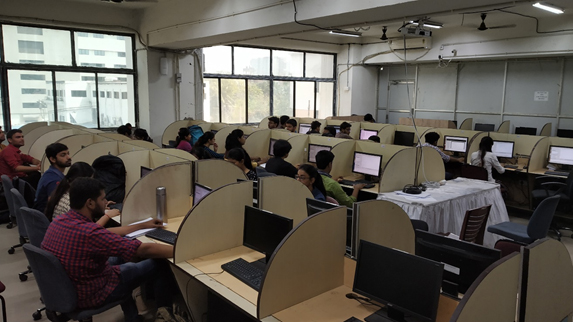
b. A brief description of Major instruments/Softwares
i. Desktop Computer (Pentium CPU 3.10 GHz, 4 GB RAM, 500 GB HDD) – 20 Nos.
ii. Network Switch (24 ports, Gigabit) – 1 Nos.
iii. ALTERA DE2-115 FPGA Board
iv. ALTERA DE4 Board
v. ALTERA D8M-GPIO Board
vi. ALTERA MT LCD Module
vii. SERVO-MOTOR KIT
viii. Lenovo ThinkServer RS160 (Xeon Quad Core CPU, 8 GB RAM, 2 TB RAID HDD) – 1 No.
ix. LCD Projector (Epson EBS31)
x. ALTERA Quataus II Design Suite
b. A brief description of Major instruments/Softwares
i. Desktop Computer (Pentium CPU 3.10 GHz, 4 GB RAM, 500 GB HDD) – 46 Nos.
ii. Network Switch (24 ports, Gigabit) – 2 Nos.
iii. LINUX (Ubuntu 14.04)
iv. CodeBlocks with GNU C Compiler
v. Wireshark
vi. Windows 8.1
vii. Visual Basic 6.0
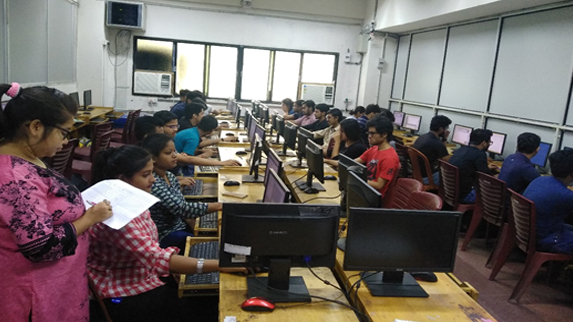
b. A brief description of Major instruments/Softwares
i. Desktop Computer (Pentium CPU 3.10 GHz, 4 GB RAM, 500 GB HDD) – 46 Nos
ii. Network Switch (24 ports, Gigabit) – 2 Nos.
iii. CodeBlocks with GNU C Compiler
iv. JDK 1.8
v. Eclipse Mars
vi. Netbeans
vii. Oracle 10g client
viii. Dia
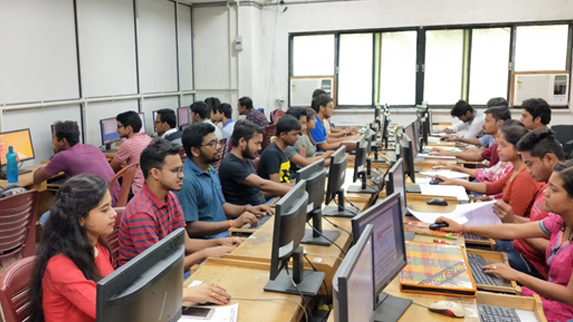
b. A brief description of Major instruments/Softwares
i. Desktop Computer (Pentium CPU 3.10 GHz, 4 GB RAM, 500 GB HDD) – 40 Nos.
ii. Network Switch (24 ports, Gigabit) – 2 Nos.
iii. CodeBlocks with GNU C Compiler
iv. JDK 1.8
v. Eclipse Mars
vi. Netbeans
vii. Oracle 10g client
viii. Dia
ix. MS Project
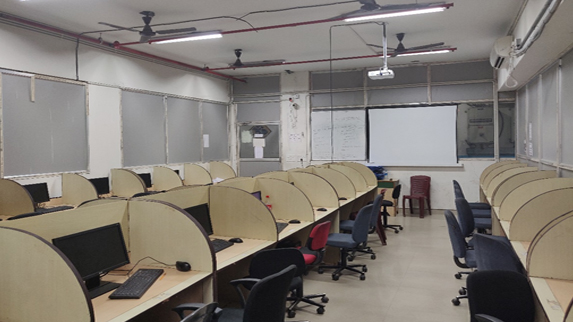
b. A brief description of Major instruments/Softwares
i. Power Supply cum Logic Probe - 20 Nos.
ii. Bread Board -20 Nos.
iii. Integrated Chip - 20nos. Each Chip (74ls85,74ls32,74ls04,74ls08,74ls83,74ls181,74ls86,74ls11,74ls157.74ls10)
In the Virtusa Java Enterprise CoE, training is provided to the students on core and advanced Java (including frameworks like Spring MVC and Spring Boot) and Angular JS. It aims to hone, engage and incubate talent to bridge the Academia-Industry requirements. This provides the students with an opportunity to be trained on additional technologies to be industry ready while still being at the campus with the benefit of industry certifications paving their way to success.
b. A brief description of Major instruments/Softwares
i. Processor: INTEL Core i5 - 55 Nos.
ii. RAM : 8 GB
iii. Hard Disk: 512 GB
iv. OS: Windows 10
v. Pegasystem Anywhere, SB Browser, VM Ware, Eclipse
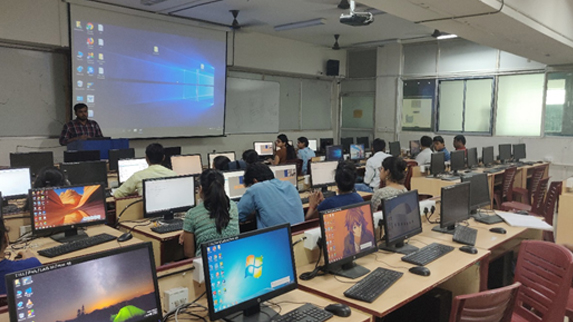
b. A brief description of Major instruments/Softwares
i. Desktop Computer (Pentium CPU 3.10 GHz, 4 GB RAM, 500 GB HDD) – 60 Nos.
ii. Network Switch (24 ports, Gigabit) – 3 Nos.
iii. Windows
iv. Linux
v. CodeBlocks with GNU C/C++ Compiler
vi. JDK 1.8
vii. Eclipse Mars
viii. Netbeans
ix. Oracle 10g client
x. Dia
xi. MS Project
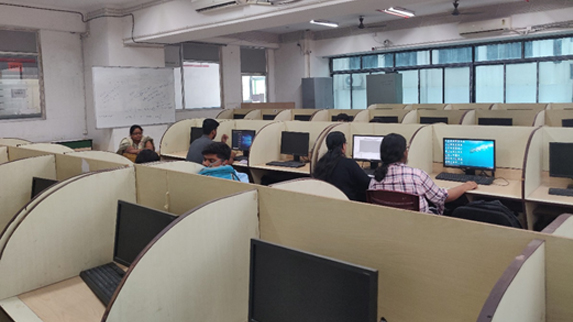
Research
Contact
Department of Electrical Engineering
Techno Main Salt Lake, Ground Floor, Academic Building,.
EM-4, Salt Lake City, Sector V, Kolkata, West Bengal 700091
E-mail: hodeedepartment@gmail.com
Interactive Learning
Techno India provides virtual interactive learning facilities to its students; such repositories can be accessed anytime and anywhere that ensure that students get hassle free access to digital library, online journals and digital notes 24x7. The digital repositories comprise a vast collection of e-books, publications, notes as well as case-studies from renowned foreign authors and industry experts. As an academic institute of repute, Techno India strives towards making the learning experience promising for the aspirants so that the location or venue is never a barrier.
Quick Links
TMSL News
Contact us
Admission Office
Helpline No: 9836544416 / 17 / 18 / 19
1. TECHNO INDIA CHINGRIGHATA CAMPUS - LB 10, EM Bypass, Sector 3,Chingrighata, Kolkata 700098, WB. (Beside Leather Technology College [Service Road])
2. TECHNO INDIA (2nd Floor)- EM-4/1, Sector-V, Salt Lake, Kolkata-700091, WB.
Campus Address
EM-4/1, Sector-V, Salt Lake, Kolkata-700091, WB Contact No: 033-23575683 / 84 / 86
Email : info@ticollege.ac.in
principal@ticollege.ac.in
Makaut Address
BF 142, BF Block, Sector 1, Salt Lake City, Kolkata, West Bengal 700064.
Website : www.wbut.ac.in
Copyright © | A unit of Techno India Group | All rights reserved
